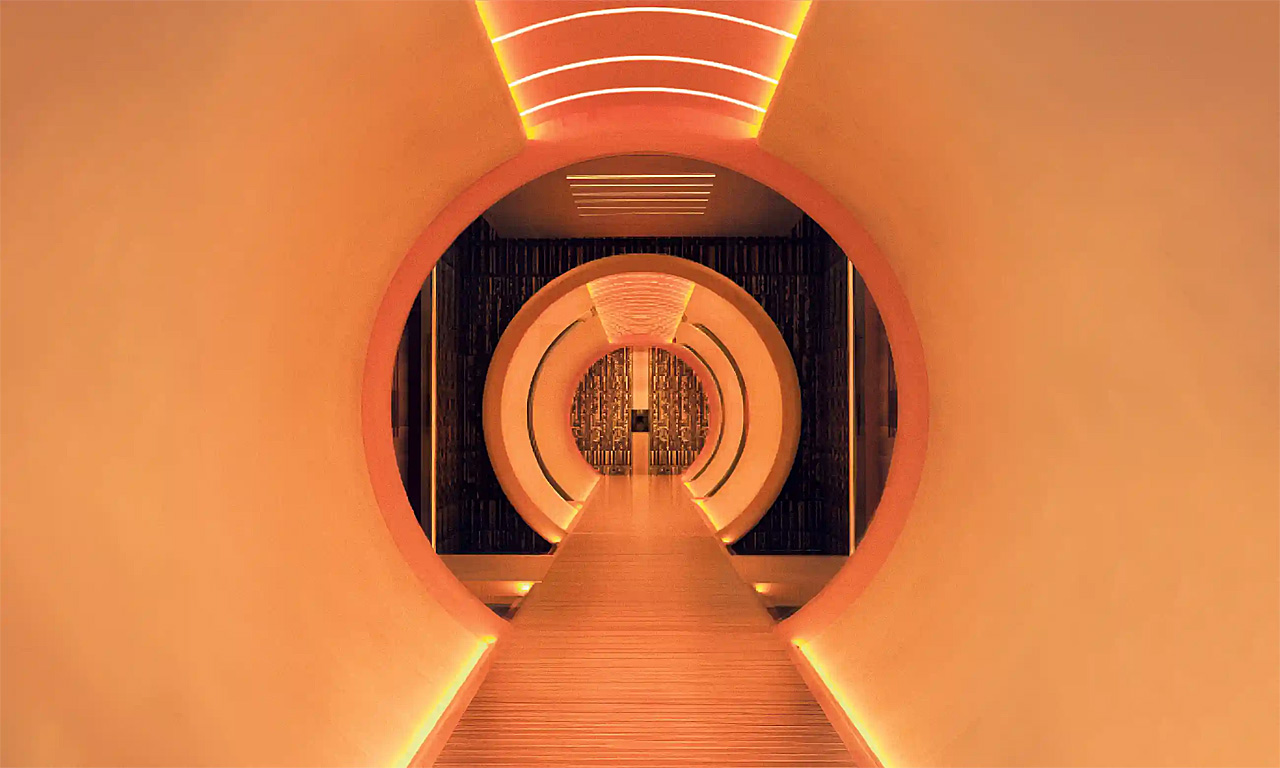Tech billionaires are buying up luxurious bunkers and hiring military security to survive a societal collapse they helped create, but like everything they do, it has unintended consequences

Excerpt from the article in The Guardian by Douglas Rushkoff. Sept. 4, 2022
 …the message that got my attention came from a former president of the American chamber of commerce in Latvia. JC Cole had witnessed the fall of the Soviet empire, as well as what it took to rebuild a working society almost from scratch. He had also served as landlord for the American and European Union embassies, and learned a whole lot about security systems and evacuation plans. “You certainly stirred up a bees’ nest,” he began his first email to me. “It’s quite accurate – the wealthy hiding in their bunkers will have a problem with their security teams… I believe you are correct with your advice to ‘treat those people really well, right now’, but also the concept may be expanded and I believe there is a better system that would give much better results.”
…the message that got my attention came from a former president of the American chamber of commerce in Latvia. JC Cole had witnessed the fall of the Soviet empire, as well as what it took to rebuild a working society almost from scratch. He had also served as landlord for the American and European Union embassies, and learned a whole lot about security systems and evacuation plans. “You certainly stirred up a bees’ nest,” he began his first email to me. “It’s quite accurate – the wealthy hiding in their bunkers will have a problem with their security teams… I believe you are correct with your advice to ‘treat those people really well, right now’, but also the concept may be expanded and I believe there is a better system that would give much better results.”
He felt certain that the “event” – a grey swan, or predictable catastrophe triggered by our enemies, Mother Nature, or just by accident –was inevitable. He had done a SWOT analysis – strengths, weaknesses, opportunities and threats – and concluded that preparing for calamity required us to take the very same measures as trying to prevent one. “By coincidence,” he explained, “I am setting up a series of safe haven farms in the NYC area. These are designed to best handle an ‘event’ and also benefit society as semi-organic farms. Both within three hours’ drive from the city – close enough to get there when it happens.”
Here was a prepper with security clearance, field experience and food sustainability expertise. He believed the best way to cope with the impending disaster was to change the way we treat one another, the economy, and the planet right now – while also developing a network of secret, totally self-sufficient residential farm communities for millionaires, guarded by Navy Seals armed to the teeth.
JC is currently developing two farms as part of his safe haven project. Farm one, outside Princeton, is his show model and “works well as long as the thin blue line is working”. The second one, somewhere in the Poconos, has to remain a secret. “The fewer people who know the locations, the better,” he explained, along with a link to the Twilight Zone episode in which panicked neighbours break into a family’s bomb shelter during a nuclear scare. “The primary value of safe haven is operational security, nicknamed OpSec by the military. If/when the supply chain breaks, the people will have no food delivered. Covid-19 gave us the wake-up call as people started fighting over toilet paper. When it comes to a shortage of food it will be vicious. That is why those intelligent enough to invest have to be stealthy.”
JC invited me down to New Jersey to see the real thing. “Wear boots,” he said. “The ground is still wet.” Then he asked: “Do you shoot?”
The farm itself was serving as an equestrian centre and tactical training facility in addition to raising goats and chickens. JC showed me how to hold and shoot a Glock at a series of outdoor targets shaped like bad guys, while he grumbled about the way Senator Dianne Feinstein had limited the number of rounds one could legally fit in a magazine for the handgun. JC knew his stuff. I asked him about various combat scenarios. “The only way to protect your family is with a group,” he said. That was really the whole point of his project – to gather a team capable of sheltering in place for a year or more, while also defending itself from those who hadn’t prepared. JC was also hoping to train young farmers in sustainable agriculture, and to secure at least one doctor and dentist for each location.
On the way back to the main building, JC showed me the “layered security” protocols he had learned designing embassy properties: a fence, “no trespassing” signs, guard dogs, surveillance cameras … all meant to discourage violent confrontation. He paused for a minute as he stared down the drive. “Honestly, I am less concerned about gangs with guns than the woman at the end of the driveway holding a baby and asking for food.” He paused, and sighed, “I don’t want to be in that moral dilemma.”
That’s why JC’s real passion wasn’t just to build a few isolated, militarised retreat facilities for millionaires, but to prototype locally owned sustainable farms that can be modelled by others and ultimately help restore regional food security in America. The “just-in-time” delivery system preferred by agricultural conglomerates renders most of the nation vulnerable to a crisis as minor as a power outage or transportation shutdown. Meanwhile, the centralisation of the agricultural industry has left most farms utterly dependent on the same long supply chains as urban consumers. “Most egg farmers can’t even raise chickens,” JC explained as he showed me his henhouses. “They buy chicks. I’ve got roosters.”
JC is no hippy environmentalist but his business model is based in the same communitarian spirit I tried to convey to the billionaires: the way to keep the hungry hordes from storming the gates is by getting them food security now. So for $3m, investors not only get a maximum security compound in which to ride out the coming plague, solar storm, or electric grid collapse. They also get a stake in a potentially profitable network of local farm franchises that could reduce the probability of a catastrophic event in the first place. His business would do its best to ensure there are as few hungry children at the gate as possible when the time comes to lock down.
 Hidden Dangers to America’s Survival
Hidden Dangers to America’s Survival